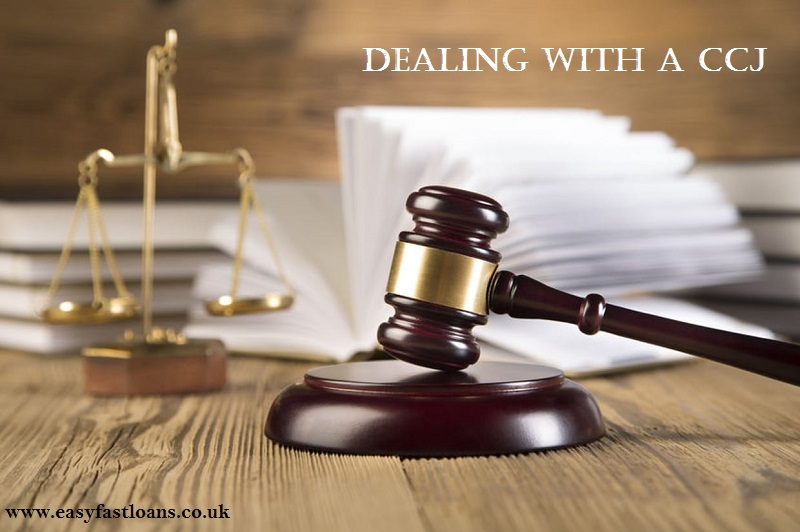Dealing with CCJs
Many times, we may take on unaffordable debt and struggle to pay it back. Especially in case of unsecured loans, a County Court Judgment (CCJ) will make its way to you if you don’t repay what you owe. This is a type of court order in England, Wales and Northern Ireland. It’s the last resort for lenders to recover the money they’ve lent. CCJs are a delicate matter and need careful dealing-with. Here, we explore the different faces of a UK court order against non-repayment.
- What you should do on receiving a CCJ claim form letter
- How to respond to a CCJ letter
- Deadline of response
- Receiving judgment on your CCJ
- Deviating from the terms of Court Summons
- Effect on your credit record
- Avoiding being called to Court
What You Should Do On Receiving a CCJ Claim Form Letter
Court orders never come out of the blue. It’s likely that your creditor will send you a warning or default notice well in advance. This notice states that if you don’t repay within a number of days, legal action will ensue. Those credit agreements that find protection under the Consumer Credit Act are given a 14-day period before further action is taken. A CCJ letter will tell you how you should send your response and what will happen if you don’t. It’ll also include a copy of the FCA’s default information sheet.
How To Respond To a CCJ Letter
If you’re caught in a situation like this, you should seek help from debt advice services. It’s advisable to write back explaining your financial circumstances in detail. This assists the court greatly in making a decision as to how you can repay your debt. That is, in full lump sum or in small instalments. If you ignore the claim form letter, the judgment will happen regardless but you won’t get a chance to turn things in your favour.
Deadline of Response
Sadly, you can’t take your own sweet time in legal matters. You’ll likely have to send a response about your incomes and outgoings within the given deadline of 14 days. You might be tempted to put it off but ignoring a CCJ only gives rise to disastrous consequences. The response may be of three types:
- Disagreement on the amount owed thus filing a defence
- If you need more than 14 days for preparing a defence, submitting an acknowledgement of service
- Agreement with the amount you owe and whether you can pay in lump sum or instalments

Receiving Judgment on Your CCJ
You’ll receive either a judgment by instalments (where you pay the full amount over time) or by lump sum (where you clear your debt forthwith). If you’ve made an offer of monthly payment, it’s likely to be considered by the court. The court will decide the payment rate after deliberation on your financial circumstances. Even if you don’t respond, you won’t evade the CCJ. Then, you risk the verdict on the mode of repayment not being in your favour. In both cases, you can request the court to reconsider. This process is known as redetermination. Different rules may apply based on certain timescales.
Deviating from the Terms of Court Summons
If you deviate from the terms set out by a CCJ, the creditor can get the court to enforce the debt. There are several ways this can be done, some of them being:
- Bailiff action:
In this, the court will appoint a bailiff and in addition issue a Warrant of Execution. This gives the bailiff the power to turn up at your home or workplace demanding the money. He could also seize goods in order to sell them as per court order. - Charging order:
This is an order that is secured against some property you own (either with a mortgage or not). In case you fail to repay the sum you owe, you take the risk of losing your home. - Attachment of Earnings Order:
With an Attachment of Earnings order in hand, your employer would directly cut the specific amount from your wages.
Effect on Your Credit Record
CCJs carry long-lasting effects so ignoring them won’t do good. If you don’t pay back the money you owe within 30 days of the judgment, an entry is made on your credit record at the Register of Judgments, Orders and Fines. And this black mark follows you for six years making it difficult to get a mortgage, credit card or even a simple bank account.
Avoid Being Called To Court
Here are some tips to stay as far away from CCJs as possible.
- If you’re struggling managing debt, speak to a free debt advisor. They can speak to your creditor on your behalf and settle for affordable repayments.
- Make repayments on time and aim for clearing your debt early. This proves that you’re a sensible borrower.
- If you wish to use savings for doing away with borrowed credit, remember to keep some cash handy in an easy access savings account for an emergency.




